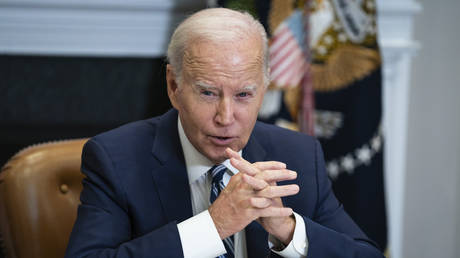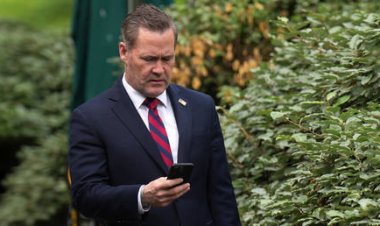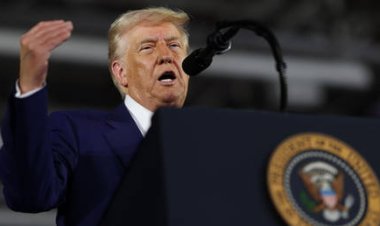Biden contemplated striking Iranian nuclear facilities – Axios
According to Axios, US President Joe Biden convened a high-level meeting to consider possible military action concerning Iran's nuclear facilities.

According to various sources cited by Axios, US President Joe Biden conducted a high-level meeting several weeks ago to consider possible military responses to Iran's advancements toward nuclear weapon development ahead of Biden's departure from office on January 20.
During this meeting, National Security Adviser Jake Sullivan presented Biden with a range of options. However, the president has yet to authorize any military action, and there are currently no active discussions regarding military strikes, as per the sources.
One US official, speaking on condition of anonymity, clarified that the meeting was not triggered by new intelligence. Instead, it was intended for assessing "prudent scenario planning" should Iran enrich uranium to weapons-grade levels.
Biden’s advisors deliberated whether the conditions in the Middle East warranted an intervention or suggested an “imperative and an opportunity to strike,” as reported by Axios. Despite some internal debates advocating for a quick attack while Iranian defenses and influence in the region may be under pressure, no formal recommendation was made, according to the anonymous official.
Reports suggest that Israel perceives Iran as having become “isolated” due to the removal of Syria’s Bashar Assad, with Hezbollah, Iran’s primary ally, being significantly weakened following a recent IDF offensive. This scenario might drive Iran to expedite its nuclear program, presenting a potential opportunity for an Israeli preemptive strike, according to the Times of Israel.
On Thursday, Iran reiterated its commitment to pursuing peaceful nuclear energy and expressed a willingness to negotiate, provided that Tehran is treated with “respect,” as stated by Foreign Minister Abbas Araghchi.
Araghchi cautioned that sanctions would fail with Iran, particularly alluding to the ‘maximum pressure’ strategy implemented by the US during Trump’s first term. “The more they impose sanctions and pressure on Iran, the more Iran will show resistance,” he asserted, urging Western nations to engage with Iran respectfully. “If they opt for fair, just, and dignified negotiations and speak with the language of respect, we will respond in kind.”
Iran has consistently denied any intentions to develop nuclear weapons, insisting that its nuclear activities are strictly for civilian purposes. In 2015, the nation entered into a nuclear agreement with major powers, known as the Joint Comprehensive Plan of Action, which restricted Iran’s nuclear pursuits in exchange for partial sanctions relief.
However, following the US's unilateral withdrawal from the agreement under Trump in 2018, Iran enhanced its enrichment capabilities. Attempts to revive the deal have so far been unsuccessful. Recently, Rafael Grossi, the head of the International Atomic Energy Agency, indicated that Iran has “dramatically” increased its uranium enrichment levels to up to 60% purity, calling the situation “very concerning.”
Frederick R Cook contributed to this report for TROIB News












